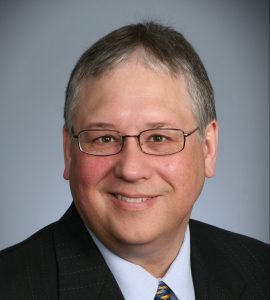Dr Alan Anderson recently convocated from the Department of War Studies at King’s College London, where he studied the laws of naval warfare and naval strategy at the turn of the 20th century. Alan joined the staff of BritishNavalHistory.com last year, and we are thrilled to have in aboard. In this blog, Alan explains how he became a historian.
Like many others who became a historian, my interest in history had its genesis in my family and their military service. My father was a combat veteran of the Second World War; wounded three times in action, the last of which left him in hospitals for four years and rated 100% disabled. His middle brother likewise was a wounded combat veteran; a company commander of infantry in Northwest Europe who lost men under his command and who suffered – as I figured out only after he had passed away – from post-traumatic stress for the remainder of his life. I grew up surrounded by other uncles who had served in the military.
Although neither my father nor my uncles talked much about their service, they influenced my interest in history from a young age. I wanted to know something of what they did, especially in the war. I devoured history, mainly military history. Fiction held little interest for me. I remember reading William L. Shirer’s The Sinking of the Bismarck when I was about ten years old. I read all the military history books I could find in my high school library. From Richard Tregaskis’s Guadalcanal Diary to John S.D. Eisenhower’s The Bitter Woods – I read military history, regardless of the branch or branches of service involved. Biographies, first-person accounts of military service – all fed my interest in history. In high school history classes, I was always disappointed when the class inevitably ended at about the First World War – maybe we got to the Interwar Years. We never reached the Second World War, much less any later conflicts. We always ran out of time to go any further as the school year came to a close.
And then I became practical.
When I went to college, I majored in political science and economics. I was going to go to graduate school and get an MBA. After all, you needed to get a job. The study of history had no place in such a plan. Later, my plans morphed into getting not only an MBA but also a law degree. Still, I took some history classes as an undergraduate. In particular I took a class on English history since 1688 and another on medieval history, both from an amazing professor who renewed and expanded my interest in history. He showed me how fascinating the study of the past could be, and how it was relevant to the here and now. Those classes kept my interest in history alive.
I went to law school, graduated, and started practicing law. I got to be pretty good at what I did. History became my diversion, my “reality check” from the intense and often irritating world of the law. Spare time and free weekends were spent reading volumes of history – not just “popular” history, but real academic tomes loaded with notes and references. But after nearly 25 years, I needed to regain my sanity to a great extent. I needed something that would truly interest me and be enjoyable.
I discovered history as a profession.
And so I started to see if I was any good at history. I worked on my MA part-time, and realized that not only did I truly enjoy history – far more than the law – I was pretty good researching and writing. Presenting a good history argument is very much like making a sound legal argument. After I received my MA came the big decision: whether to start work on a PhD. I took several years to decide. I met a relatively young military historian who led a staff ride on the Second World War campaign on Sicily (where my father had fought), Dr Lee Windsor from the University of New Brunswick, and found a truly amazing, passionate, interesting, and intense historian. He showed me what being a historian could mean. I was fortunate to receive some great advice from advisors and some true giants in the field of naval history – Professors John Hattendorf and Andrew Lambert. Their encouragement and guidance led me to focus my research for my PhD on naval history and the laws of naval warfare. I went to King’s College London to concentrate on war studies, a multidisciplinary approach to history. And the rest, as they say, is history.
Now, I see my “job” as a historian as essential. I look at young persons and see that many, if not most, have no conception or understanding of history or its importance. I realize the great need that exists to show people how history matters and especially how military history is not just some “drums and trumpets” but a vital part of the fabric of any society. Without an understanding and knowledge of history, we do not know where we came from, much less where we might be going.
Looking back, in many respects it seems inevitable that I would become a historian, and particularly a military historian, although ultimately my path was neither direct nor rapid nor certain. Becoming a historian required a major decision and a significant change of direction in my life. It necessitated a leap of faith. It needed support and encouragement from family and friends and colleagues. I was – and am – lucky to have found my way to become a historian. I relish it.








